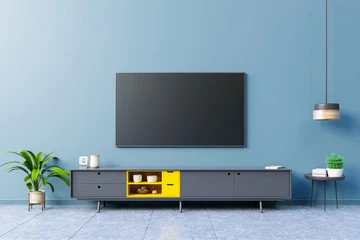Let’s be honest. We spend plenty of time in front of the television. It doesn’t matter if you watch Netflix, Hulu, or catch up with your favorite sporting event.
A TV with excellent sound and picture quality are must-have’s. If you’re in the market for a smart TV, we’re happy to give you a rundown on two of the best companies on the market–LG and Samsung. We’ll help you understand their differences so you can make an informed decision on which TV brand is best for you.
Investigating the LG vs. Samsung Brands

Both Samsung and LG lead the way when it comes to electronics. Both companies have net worths in the billions, whether it’s appliances, smart TVs, or phones. Perhaps that’s why we thought an LG vs. Samsung battle might be worth doing. Samsung outranks LG in net worth primarily due to their smartphones and semiconductors, but the competition is close when it comes to smart TVs and home appliances.
Both Korean companies created smart TV models ranging from several hundred to thousands of dollars. Also, both companies have been in business since the early 1900s, so we feel they have perfected the art of television making.
Now, let’s look at the differences between these two companies and the TVs they provide.
LG TV Displays
Since your picture quality is essential in a television, we figured we start the competition here.
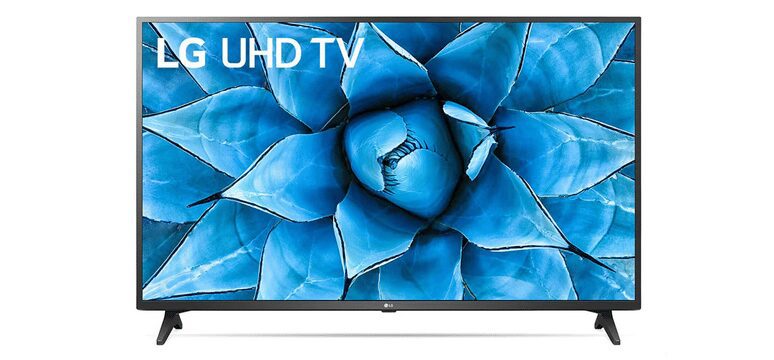
LG uses OLED or organic light-emitting diode displays. This technology uses thin, carbon-based films built directly into the television screen to light up the screen. When electricity hits the organic structure, it lights. Unlike LED (light-emitting diodes) displays that require backlighting for the lightbulbs within the television,
OLED requires no backlighting, making them thinner than LED TVs. The OLED technology allows for a wide-angle view without compromising the picture quality. Since most of us are set up in a living room with multiple people at different angles to the television, the OLED display allows everyone an excellent view as they watch TV.
Another excellent thing about OLED TV brands is the ability to light only the pixels required for a particular scene in a movie or television show. LED TVs light up all the pixels, making some dark movie scenes appear gray. Because OLED technology only uses the pixels needed for the particular screen, the screen looks crisper with the pixels that are lit appearing brighter.
Resolution
LG TVs feature 4K in their displays, which means there are about 4,000 pixels horizontally and 2,000 vertically for a total of 8 million pixels. If you’re wondering, that is a whole lot of pixels. In comparison, full HD resolution is about 2000 pixels horizontally and 1,000 pixels vertically, giving it 2 million pixels.
The 4K resolution is four times better. Certain LG TVs have 4K upscaling even if the content isn’t coming across in 4K. The TV upscales the videos to make them similar to the resolution of 4K content.
Also Read : LG CordZero Reviews
Samsung TV Displays
When it comes to a Samsung TV, it uses a QLED, quantum dot light-emitting display. The difference between LG and Samsung in terms of the display is that Samsung TVs still use the LED backlight with the QLED technology.
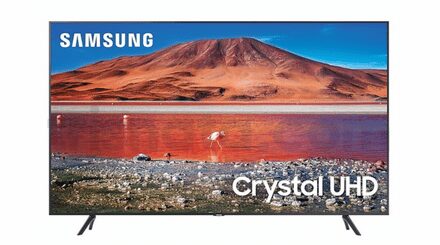
However, they add a layer of quantum dots that emit a wide range of colors in front of the backlight. The result is a brighter, more colorful picture quality than previous LED Samsung TVs. Because the LED backlight is used, all pixels are illuminated, unlike the OLED LG TV, which shines only pixels that are required.
While the Samsung TV features more dynamic colors, the OLED TV takes the win in picture quality due to its ability to illuminate pixels without a backlight, enhancing the overall picture.
Resolution
Samsung TVs also have 4K resolution like the LG TVs. Both Samsung and LG have introduced the 8K resolution with over 33 million pixels. Before you run to the store and grab one of these, let us caution you. This technology is a newer thing, and there isn’t much content available in 8K right now.
That means there isn’t much difference in picture quality between the 4K and 8K currently. Will that change? Probably in time, but it might be best to wait before diving into an 8K television that costs significantly more money with the same picture quality as a 4K resolution.
HDR – High Dynamic Range
We discussed display and resolution, but there is another element to picture quality that comes at a premium. It’s called HDR or high-dynamic range. This factor is the contrast on the TV, the brightness, and the darkness. It also incorporates color accuracy or how real-life pictures look. A better contrast ratio will showcase a better picture even against a high-resolution TV.
With significantly brighter colors, your television looks much better. LG TVs offer Dolby Vision, an HDR with a broader range of colors featuring a 12-bit color gamut. On the other hand, a Samsung TV offers HDR 10+, which has a slightly lower color gamut of 10 bit. Both TV brands feature better visual content due to the HDR additive, with LG slightly surpassing Samsung because of the Dolby vision. However, the color doesn’t change much between the two, and Dolby Vision is significantly more expensive.
Also Read : Best Key Organizer
Operating Systems
A smart TV is only as good as its operating system. In the LG vs. Samsung TV debate, the operating system is a crucial ingredient in the battle.
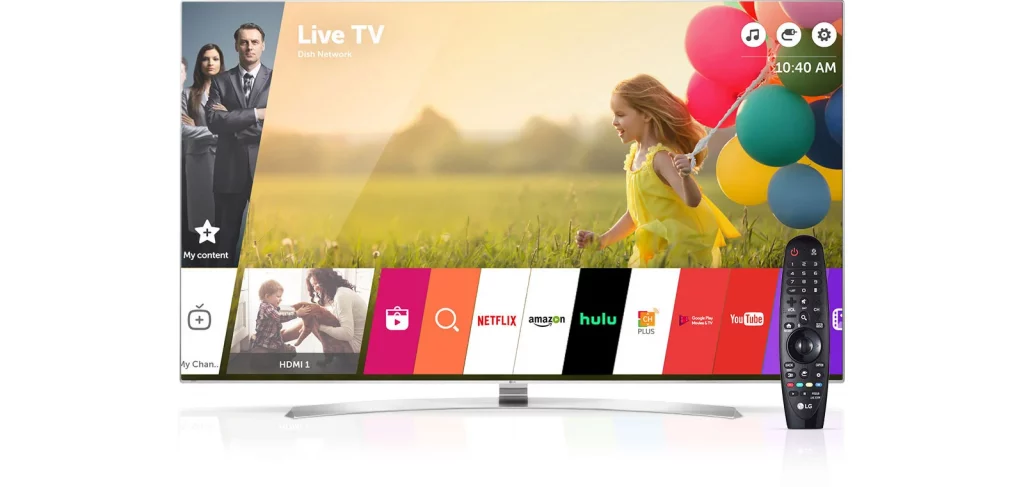
LG uses an operating platform called LG webOS with a built-in google assistant. This TV brand sets itself apart from its operating system because of its ThinQ AI software which features a better search algorithm than Samsung TVs. LG webOS allows you to navigate with your remote and link to other smart devices around the house like Alexa.
Not to be outdone, Samsung TVs offer an operating system called Tizen. This platform is similar in structure to LG’s webOS with easy-to-use navigation. It also comes with Bixby, Samsung’s voice assistant. Some higher-end Samsung TVs have a built-in google assistant or Alexa.
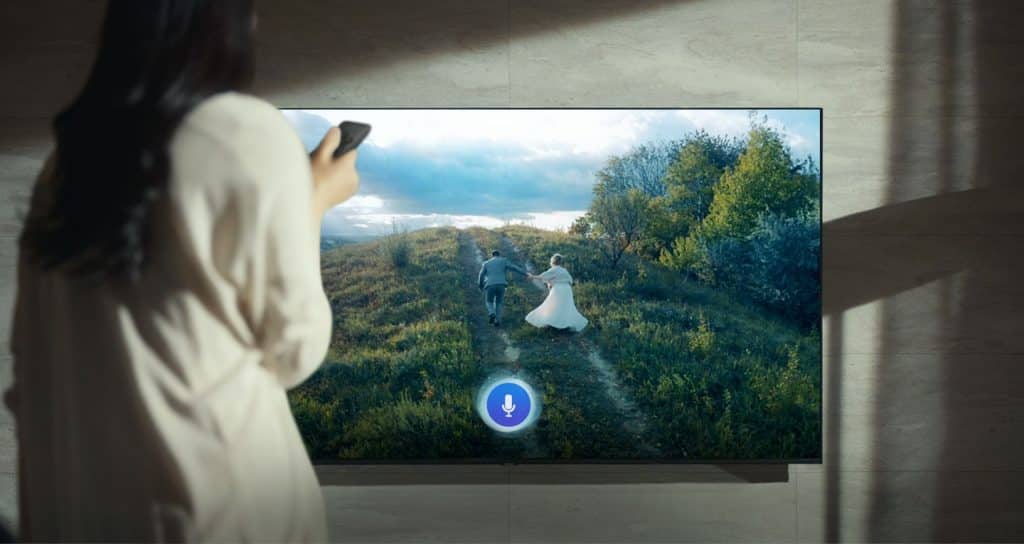
The edge goes to LG for operating systems despite a close race because of LG’s ThinQ AI search software that outranks Samsung’s. It’s a close call, so we’re not calling LG the overall winner yet.
Sound Quality
Both LG and Samsung TVs carry similarities in sound quality. Both TV brands offer intermediate-level televisions with excellent frequency response, which is the range of sounds emitted from the smart TV.
In the same way, they keep sound distortion or unwanted deviations in the sound curve to a minimum. A higher-end LG TV or Samsung TV will feature more prominent speakers and bass if that is a necessary requirement. Overall, we can sound quality a tie for both LG and Samsung TVs.
Pricing
Speaking of expensive, let’s discuss pricing for these TV brands. In general, LG and Samsung TVs are similar in pricing for similar models. For instance, according to consumer reviews, one of the best mid-range Samsung TVs available right now is the Samsung 43-inch QLED Q6 series. That TV is priced at $497 on Amazon. It features a 4K UHD with quantum HDR and a built-in Alexa.
For LG, a great mid-range option is the LG 43UM7300PUA Alexa Built-in 4K Ultra HD Smart LED TV. It is priced at $499 on Amazon. Both mid-range options are similar in price for LG and Samsung.
Historically, Samsung is known for having a heftier price tag than LG. It’s worth comparing them based on the size and features you want to get a better idea as there are thousands of televisions to choose between in the market.
High-end options like 8K come with a hefty price tag in the tens of thousands. As we said, it might be worth holding off on those options.
Concluding Thoughts
These television empires speak for themselves regarding high-end technology that brings the screen to life. You really can’t go wrong with either TV. While LG features OLED technology and Dolby Vision, Samsung brings QLED technology and HDR 10+. Both TV brands feature smart operating systems, making streaming services easy to navigate. Ultimately, it comes down to your preferred technology, whether OLED or QLED. Either way here’s to binge-watching your next favorite show on one of these spectacular brands.

